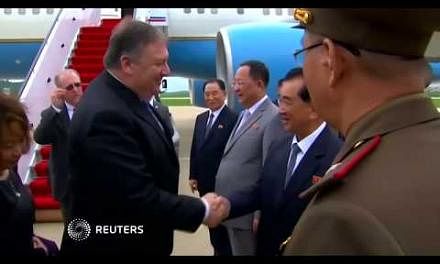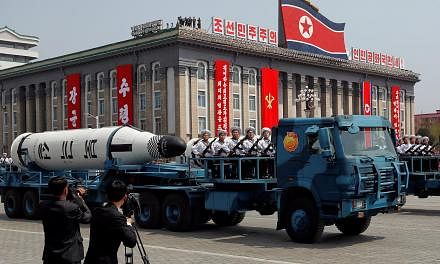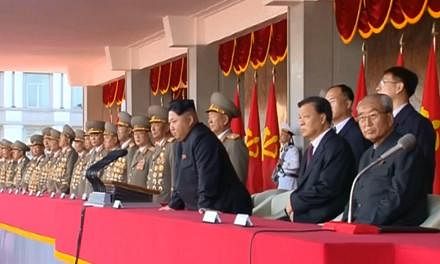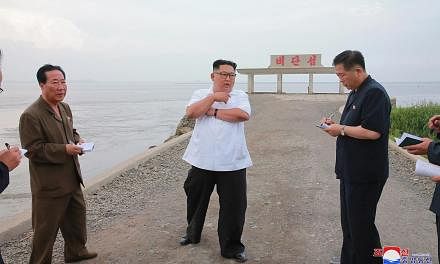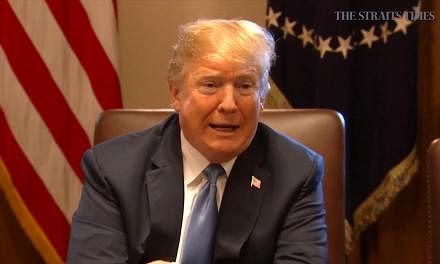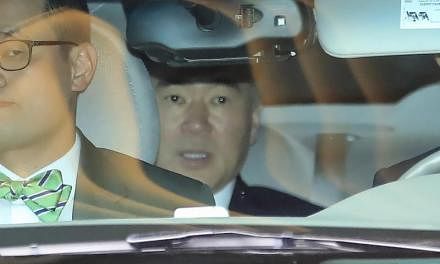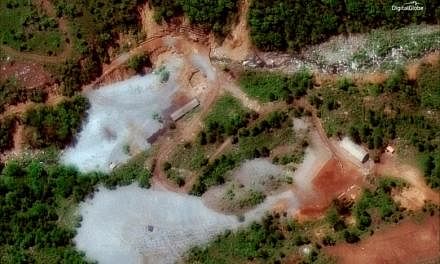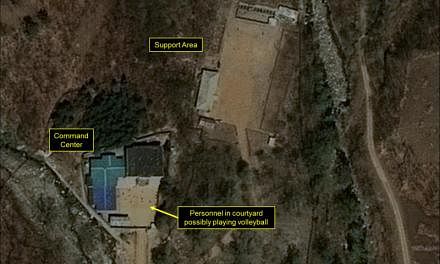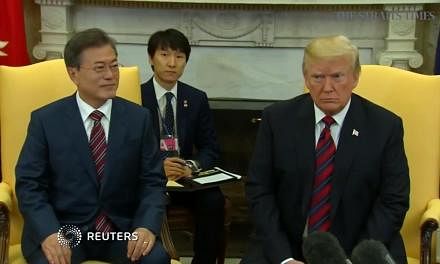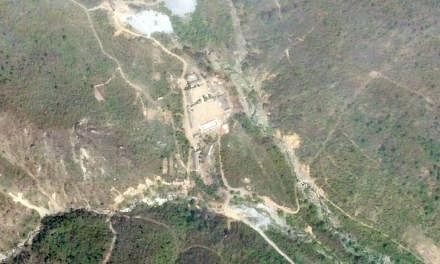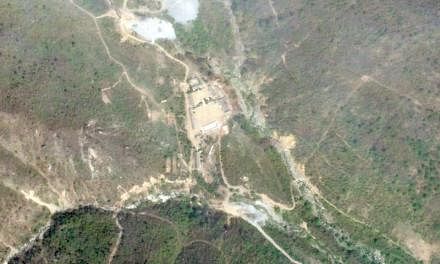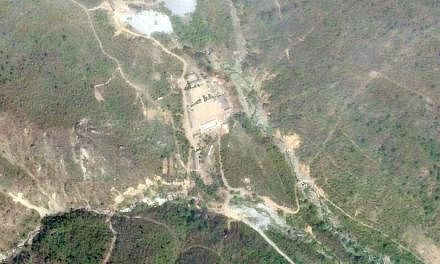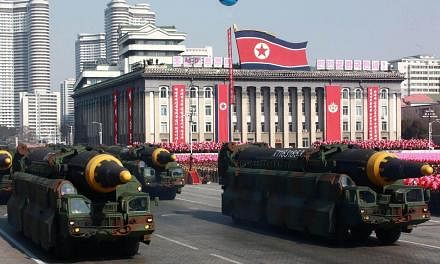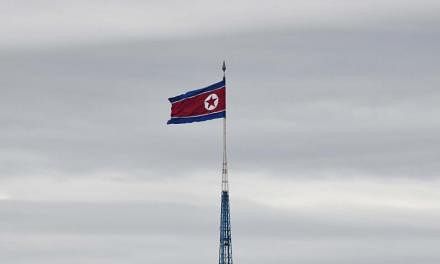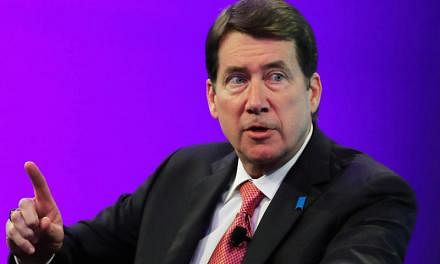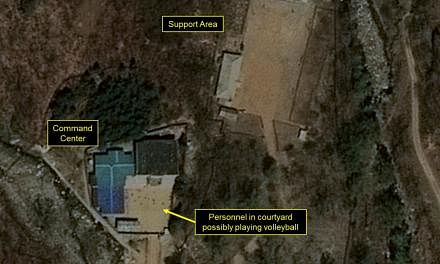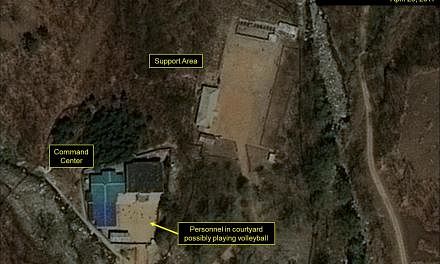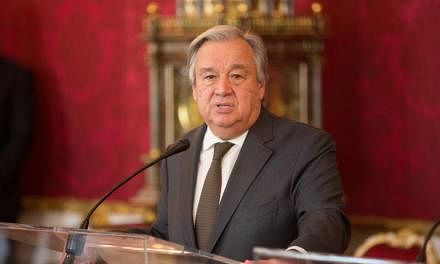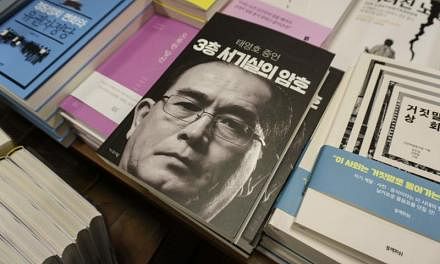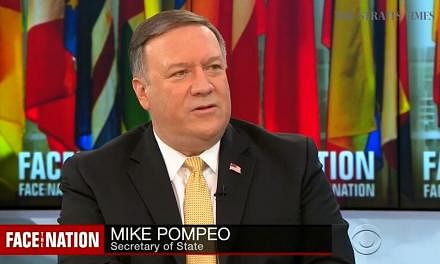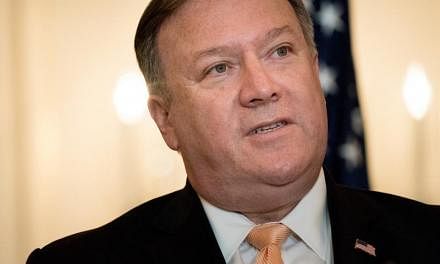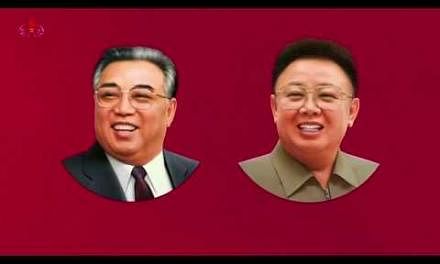UNITED NATIONS - The UN Security Council on Monday ratcheted up sanctions yet again against North Korea, but they fell significantly short of the far-reaching penalties that the Trump administration had demanded just days ago.
While the sanctions were described in Washington and other capitals as the most extensive yet, in the end they amounted to another incremental increase of pressure on the country, even after it detonated its sixth and most powerful nuclear device.
It was far from clear that the additional penalties would accomplish what the Trump administration said was its goal: To force North Korea to halt its nuclear and ballistic missile tests and reopen some kind of negotiation toward eventual nuclear disarmament.
Some British officials warned, in private, that if the original US proposal went forward, this winter the North Koreans would be showing photographs of freezing children, and portraying the West as architects of a genocide.
Although the resolution won backing from all 15 council members, the weakened penalties reflected the power of Russia and China.
Both had objected to the original language calling for an oil embargo and other severe penalties - with Russia President Vladimir Putin declaring last week that such additional sanctions would be counterproductive and possibly destabilising. Either could have used their status as permanent members of the Security Council to veto the measure.
A revised draft emerged late Sunday after a series of closed-door meetings and on Monday, the 15-member council passed the eighth sanctions resolution since 2006 when North Korea conducted its first nuclear test.
In a nod to Chinese and Russian arguments, the resolution also calls for resolving the crisis "through peaceful, diplomatic and political means". That is diplomatic code to engage in negotiations.
Despite the weakened penalties, US Ambassador Nikki R. Haley cast the resolution as a victory in her Security Council remarks.
Here's a look at the new set of sanctions against North Korea and how it compares with the original US draft.
1. Caps on oil supplies to North Korea, instead of a total ban
For the first time since the UN Security Council imposed in 2006 the first set of sanctions against North Korea, the latest set of sanctions targeted the regime's oil supplies, according to Yonhap news agency.
It imposed caps on the imports of oil but stopped short of measures that could cripple the regime.
The US had originally sought a total ban on all oil and natural gas exports to North Korea, but the watered-down version sets caps on energy supplies to North Korea.
The new sanctions include a freeze on North Korean imports of crude oil at current levels of four million barrels a year and a cap on imports of refined petroleum products at two million barrels annually, or about half the current levels. That would shave off roughly 10 per cent of what North Korea currently gets from China, according to the US Energy Information Agency.
2. Tightened inspection of ships
The latest UN resolution asks countries around the world to inspect ships going in and out of North Korea's ports (a provision put in place by the Security Council in 2009) but does not authorise the use of force for ships that do not comply, as the Donald Trump administration had originally proposed.
The resolution also requires those inspections to be done with the consent of the countries where the ships are registered, which opens the door to violations.
Under the latest resolution, those ships could face penalties, but the original language proposed by the US had gone much further, empowering countries to interdict ships suspected of carrying weapons material or fuel into North Korea and to use "all necessary measures" - code for military force - to enforce compliance.
3. Cutback in revenues from overseas North Korean workers
Instead of an outright ban on North Korean labourers, the final resolution adds a caveat that says countries should not provide work authorisation papers "unless necessary for humanitarian assistance or denuclearisation".
Under the new set of sanctions, member countries are not to issue new work permits to North Korean labourers sent abroad and have to report on the date for ending existing contracts in a move aimed at phasing out the practice.
Around 93,000 North Koreans work abroad, providing the Kim Jong Un regime with a crucial source of revenue to develop its missile and nuclear programmes, according to a US official familiar with the negotiations.
"This ban will eventually starve the regime of an additional US$500 million or more in annual revenues," Haley said on Tuesday.
4. Total ban on textile exports
North Korea is now banned from exporting textiles - its second-biggest export after coal, seafood and other minerals in 2016, totalling US$752 million, according to data from the Korea Trade-Investment Promotion Agency. Nearly 80 per cent went to China.
5. No travel ban and asset freeze on Kim Jong Un
The original US draft would have ordered all countries to impose an asset freeze and travel ban on Kim Jong Un and four other top party and government officials.
The resolution adopted on Monday adds only one person to the sanctions list - Pak Yong Sik, a member of the Workers' Party of Korea Central Military Commission, which controls the country's military and helps direct its military industries.
Kim Jong Un is not known to have travelled abroad since he took power in late 2011 following death of his father Kim Jong Il.
6. No blacklisting of North Korea's national airline
The US had wanted to freeze the assets of North Korea's state-owned airline Air Koryo, the Korean People's Army and five other powerful military and party entities.
The resolution adds only the Central Military Commission of the Workers' Party of Korea and the party's powerful Organisation and Guidance Department and its Propaganda and Agitation Department to the sanctions blacklist.
The United Nations has previously accused Air Koryo of being involved in the smuggling of banned goods. The airline has a number of domestic flights connecting the capital Pyongyang to Orang, Sondok and Samjiyon towns, according to a schedule available last year (2016). Earlier this year, it added a route from Pyongyang to the Chinese city of Dandong, the main transit point for trade between the two countries.
Visitors to North Korea say the airline has diversified into new markets in recent months, including cigarettes and fizzy drinks, a taxi fleet and petrol stations in North Korea.
SOURCES: NYTIMES, CBS News, AFP, REUTERS, YONHAP NEWS AGENCY

